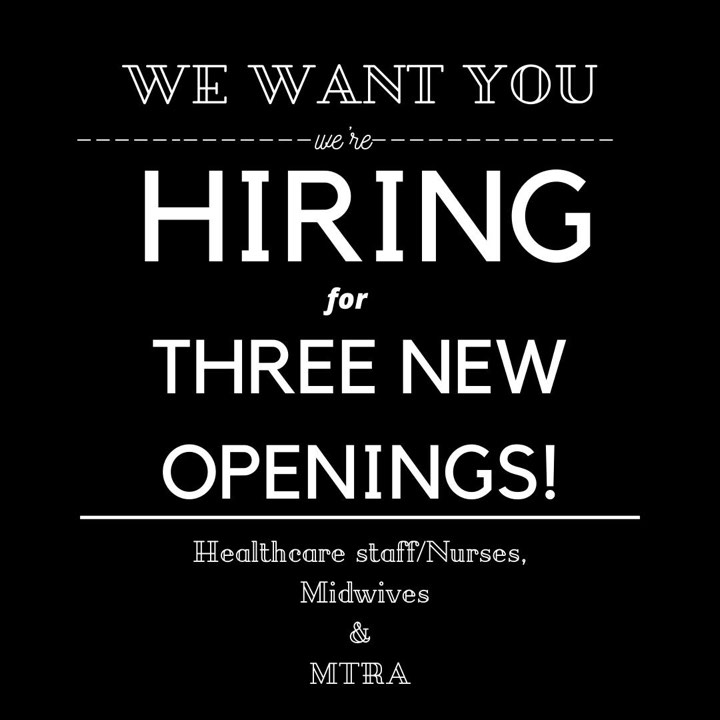You have good days and bad days, successes and failures, but sooner or later you start thinking, “Is there a job out there more suitable for me?”
By nature, even the coolest jobs start losing their luster the day you start them. So how do you learn to love your job once the honeymoon is over? Read on.
1. Stretch Your Roles
If you’ve grown tired of what you do day in and day out, do something different. “Become an elastic band. Push yourself to take on new assignments and gain some extra skills,” says Mark Swartz,senior career columnist for Monster Canada. “Be part of something bigger.”
Executive coach Cheryl Palmer, owner of the consultation company Call to Career, advises unmotivated workers to volunteer for internal committees. “Many large companies have committees to review processes,” she says. “Joining one can expose you to people you might not otherwise meet and can open the door for future job opportunities.”
“Know what you love, and think about how to incorporate this aspect into your work,” says career coach and corporate trainer Carin Rockind. “Adding these passions will make you like your workplace and the rest of your job more.” Examples include offering to write blog posts, deliver presentations or help with creative brainstorming.
If you don’t have the required skills to take on greater responsibilities, consider taking classes. These days, it’s fairly easy to find in-person and online classes on everything from public relations to Web coding to copyediting. Sometimes your company will kick in some tuition, as well.
Whatever your big plans are, make sure to check in with the boss first. “You have to let your manager, and everyone else, know that you want to be involved,” says Jason Bohner, HR director at Engaged Health Solutions, a Chicago–based organizational consultancy.
“Do what you were hired to do, but keep your eyes open for opportunities to grow your skills and find happiness in your job.”
2. Make New Connections
Job fulfillment is strongly affected by your social interactions in the workplace. After all, you probably spend more time with these people than your own family. Career and job strategist Kyra Mancine recommends making or enhancing these personal connections.
“Instead of emailing a colleague, go up to him and express interest in what he’s working on,” Mancine says. She also recommends connecting with coworkers through LinkedIn. It’s professional, appropriate and helps you learn something new about the people you’re spending so much time with.
Consider joining group activities after work, as well. “If your employer has a community service program, use that as an opportunity to do something good for someone else and get away from your workplace for a few hours a week,” says Palmer.
“This will take your mind off your own troubles and also lend a helping hand to someone else.” Just for the record, there’s nothing wrong with bowling, either.
3. Get Comfortable
A small workstation makeover can make a big difference.
“Start with something as simple as clearing off your workspace and rearranging your office or cubicle,” says Mancine. “And while you’re cleaning, freshening and rearranging, take note of the ergonomics of your work area. I found I needed to raise my computer as I was starting to hunch over; I also invested in a back pillow for my office chair.”
Mancine also advises getting up and stretching every half-hour and taking leisurely walks outside. “Get the blood flowing. It will do wonders for your spirits,” she says.
Personally, I like to keep small, meaningful—alright, quirky—tchotchkes around my desk; they remind me that I do indeed have another life, and that work can be fun. They also make great conversation starters.
4. Offer Help
Reaching out to help co-workers, new employees or interns can also make you feel more vital at work.
“Increase your job satisfaction by passing along your experience to newer employees,” Palmer says. “Mentoring other employees can make your time at your current job more enjoyable.”
Family psychotherapist and author Dr. Fran Walfish says the best way to love the job you’re with is to “give” to someone else. “I don’t mean materialistic things like cash or gifts. I mean the kind of giving that requires your time, attention and personal thoughts, ideas and opinions,” she says. “Giving not only facilitates interacting with colleagues; it also kicks a bored or depressed feeling in the gut.”
Simply giving positive feedback to your team can put you in a better mood. “Start appreciating others, even the boss. Tell people they’re doing a good job and send handwritten notes,” says Mary Hladio, a veteran workplace expert. “You might be skeptical at first, but you’ll start to influence the organization’s culture, and others will return the compliments.”
And don’t forget to give yourself a little love too. “Reward yourself along the way for the small victories,” says executive trainer AmyK Hutchens. “Recognizing and rewarding mini-milestones maintains the positive momentum and keeps you smiling and engaged.”
5. Take Your Time
Sometimes all you need is a quick recharging of your batteries.
“People get so caught up in the stress of their current responsibilities. They just don’t realize all they need is a little time away,” says Andrew Schrage, founder and hiring manager at Money Crashers, a personal finance blog. “In many cases, just taking an impromptu weekend getaway or utilizing a few sick days will give you the time you need to refocus.”
If you don’t have that much time, take less. “Plan fun activities for your lunch break or right after work to lighten your mood, such as playing a team sport, learning a new hobby or taking a class,” says Brie Weiler Reynolds, career advice writer for FlexJobs.com, a telecommuting job site.
I joined a local Toastmasters Club close to where I work. Meeting twice a month breaks up the week, helps me relax and gives me something to look forward to. (Toastmasters is a public speaking social club; we don’t make toast.)
6. Keep the Big Picture in Mind
Perhaps the easiest way to feel good about your job is just to remind yourself about the big picture, not the tiny to-dos. “When the day ahead is filled with tasks you’re not happy about, remind yourself that these tasks get you closer to the bigger outcome,” says Reynolds.
The “big outcome” could be a particular project you feel good about or the overall company mission. Is there some aspect of the company that makes you proud to work there?
When all is said and done, not everyone can love the job they’re with. In other words, you can’t always get what you want. But to borrow a line from a 70’s-era musical sage: If you try sometime… you just might find… you get what you need.
If you’re still feeling antsy, there’s nothing wrong with seeing what other jobs are out there. Our job board, with positions across the country and media landscape, is the perfect place to start.






















